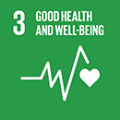Increasing physical activity in the ageing population is an urgent priority. This study primarily examined the effects of different types of goal on individuals’ quality of experience (e.g., enjoyment, confidence, motivation) during physical activity.
Open Goals
The Open Goals team has found that current best practice – specific goals (e.g., to walk 500 metres in 6 minutes) – were problematic, and that a new type of ‘open’ goal (e.g., “see how far you can walk in 6 minutes) – lead to more positive psychological outcomes. These findings are promising for more effective interventions to increase physical activity in aging adults.
This project has already achieved a range of successful outcomes, met objectives, and demonstrated impact. With this funding, the team has been able to meet the following objectives as originally stated:
- More robust evidence on the efficacy of setting open goals to increase long-term engagement in physical activity among aging adults, through the key predictor of self-determined motivation.
- Data on self-determined motivation and affect will shed new light on the effects of open goals based on the philosophy of human nature and skilled performance.
Media
Can trying to meet specific exercise goals put us off being active altogether? - The Conversation
Researchers seek people wanting to get active - UOW Media
Publications
Scholarly Book Chapters
1. Liddle, S.K., Hurley, D.S., Schweickle, M.J., Swann, C., & Vella, S.A. (2018). Ahead of the Game: A sports-based mental health program for adolescent males. In G. Breslin, G. Leavey (Eds.), Mental Health and Wellbeing in Sport: Research, Theory and Practice. London: Routledge.
Refereed Journal Articles
2. Ferguson, H., Swann, C., Liddle, S.K., & Vella, S.A. (2018). Investigating youth sports coaches’ perceptions of their role in adolescent mental health. Journal of Applied Sport Psychology. Accepted 16/04/2018.
3. Vella, S.A., Swann, C., Batterham, M., Boydell, K.M., Eckermann, S., Fogarty, A., Hurley, D.S., Liddle, S.K., Lonsdale, C., Miller, A., Noetel, M., Okely, A.D., Sanders, T., Telenta, J., Deane, F.P. (2018). Ahead of the Game Protocol: A multi-component, community sport-based program targeting prevention, promotion and early intervention for mental health among adolescent males. BMC Pubic Health, 18:390 https://doi.org/10.1186/s12889-018-5319-7
4. Hurley, D.S., Swann, C., Allen, M.S., & Vella, S.A. (2018). The development, pilot, and process evaluation of a parent mental health literacy intervention through community sports clubs. Child & Family Studies, 27, 2149-2160.
5. Swann, C., Fogarty, A., Telenta, J., Liddle, S.K., Hurley, D.S., & Vella, S.A. (2018). Youth Sport as a Context for Supporting Mental Health: Adolescent Male Perspectives. Psychology of Sport & Exercise, 35, 55-64.
6. Brown, M., Vella, S.A., Liddle, S.K., & Deane, F. (2017). Parents views of the role of sports coaches as mental health gatekeepers for adolescent males. International Journal of Mental Health Promotion, 5, 239-251.
7. Hurley, D., Swann, C., Vella, S.A., Allen, M., & Okely, A.D. (2017). The role of community sports clubs in adolescent mental health: The perspectives of adolescent males’ parents. Qualitative Research in Sport, Exercise, & Health, 9, 372-388.
8. Liddle, S.K., Vella, S.A., & Deane, F. (2017). Addressing mental health through sport: A review of sporting organisations' websites. Early Intervention in Psychiatry, 11, 93-103.
This project is working towards the UN Sustainable Development Goals:

![]()


